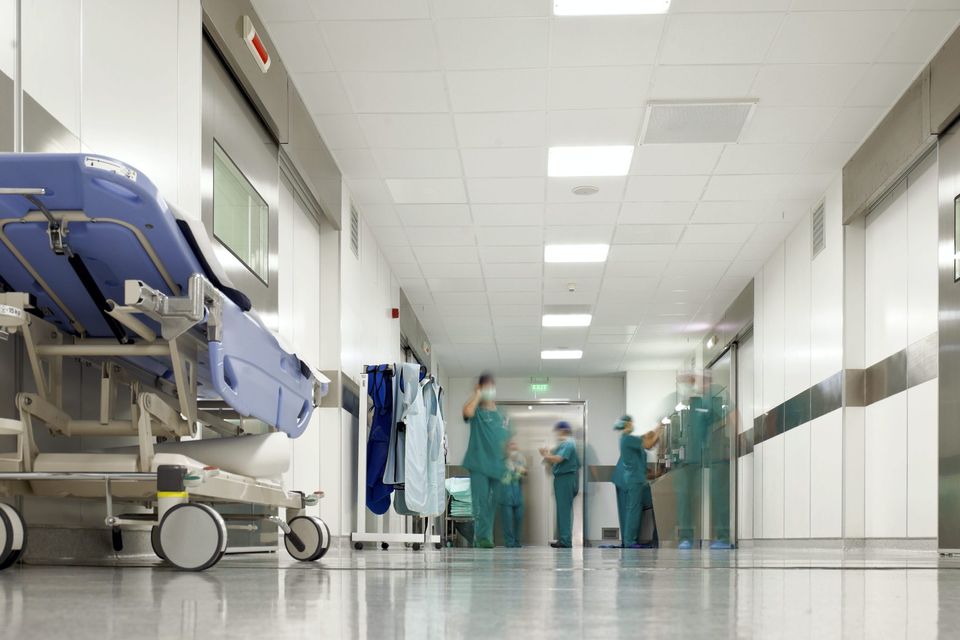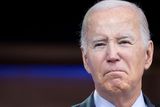Which do we want, a working health service or tax cuts?
The NHSS was meant to be reviewed in 2012
As national wake-up calls go, the HSE's blunt assessment of the financial needs of the health service for 2016 - as revealed in this newspaper yesterday - is the equivalent of the reveille or bugle call sounded at sunrise in military barracks.
For months now, political parties have been rolling out promises of tax cuts like the financial crash never happened. And that is before the general election campaign has even begun.
In our newly rediscovered 'la la land' - which completely ignores the worrying signs coming from the global economy - it will be Budget giveaways every year between now and 2020. Moves will be made to gradually phase out USC. The top rate of tax will be cut. More people will be taken out of the tax net. And for some of the parties, water charges and the property tax will be abolished.
The HSE's Budgeting and Service Planning 2016 Estimates Submission shows this all up for the dangerous nonsense that it is.
Its message is stark. The cost of standing still, without any additional policy changes, is a jawdropping additional €1.45bn in health spending. A further €419m is required to further improve services from existing levels.
To put that into context, the €1.45bn alone is the sum - to be divided equally between tax cuts and spending across all departments - the Coalition was looking at giving away in next month's Budget.
The boss of the HSE, Tony O'Brien, doesn't pull any punches in his letter to the Department of Health. "Our frontline health services require significant additional investment to begin to repair the impact of six/seven years of austerity and to move towards acceptable levels of service," he wrote.
O'Brien is nobody's fool. He will know that with a general election around the corner, there isn't a snowball's chance in hell of the HSE getting €2bn in extra funding.
But he is clearly spelling out what is required just to maintain existing services. Politicians love nothing more than kicking the HSE around the place for its shortcomings. But this document puts the ball back in their court.
We've been here before, of course. Over 14 years ago, the then Health Minister Michéal Martin and his officials caused a big kerfuffle when they told a special cabinet meeting in the Ballymascanlon Hotel in Louth that the health service needed huge extra resources after 'endemic' under-investment had left "serious deficiencies".
The difference is that back then the booming economy and housing bubble tax receipts meant there was scope to ramp up spending and still leave plenty for tax cuts. That is clearly no longer the case.
And that means hard choices need to be made. Do we want a health service fit for the 21st century and, if so, are we willing to actually pay for it?
On one level, scepticism about demands for extra funding of the health service is understandable.
Back in the noughties, health spending seemed to increase by €1bn a year without any discernible improvement in services.
A lot of the money seemed to be swallowed up by pay demands and there was a perception that health was a 'black hole' where money just disappeared.
But the health service is better placed to handle extra investment now than it was then. The system is far from perfect, but there have been significant reforms in health since then and administrators are much better equipped to handle funding increases.
The system is much leaner now, as evidenced by the fact it has stayed operational (just about) despite losing €2bn in funding and 10pc of its workforce and having vastly increased numbers coming through the doors of public hospitals.
Tony O'Brien points out in his letter that even if this increase was to be granted, funding for the health service would still be €300m lower than 10 years ago, when population growth is factored in.
Benchmarking Ireland's spending on health with other EU countries is complicated. The use of GDP (GNP is a more accurate measure for Ireland), the different demographic profiles and uncertainty over the division between public and private health spending across all countries makes comparison difficult. But it's pretty clear that compared to our peer countries - the likes of France, Germany, Denmark, Luxembourg and the Netherlands - we spend less, in some cases considerably so.
Despite that, and the growing signs that our health system is stretched to the limit - waiting lists, the numbers on trolleys and the growing difficulty in filling medical posts - much of the political debate is still framed around tax cuts or water charges.
And the reality is that, with a general election imminent, that's unlikely to change. As sure as eggs are eggs, the Government will prioritise tax cuts and fudge the health issue in the Budget.
The HSE will get an increase but not enough to really make a difference and this time next year we'll be back talking about over-runs in the HSE 2016 budget.
The health service will have to muddle through, just like politics always does without proper debate. This is a country, after all, where a political party can talk about adopting the Scandinavian model and, in the next sentence, promise to abolish water charges.
To go back to the core issue, of course we want a health service fit for the 21st century but, if we're honest, the answer to the question as to whether we want to pay for it has to be No.
Shane Coleman presents the Sunday Show on Newstalk.com at 10am
Join the Irish Independent WhatsApp channel
Stay up to date with all the latest news















